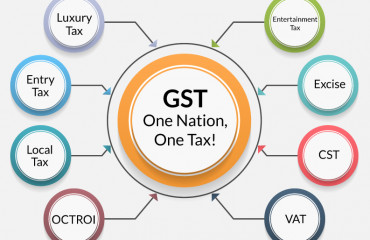
Market infrastructure institutions or persons dealing in the securities market will now have to pay a GST rate of 18% on the fees and charges paid to market regulator SEBI. The new rule has come into effect from July 18 onward. The announcement on Monday follows the GST Council's recommendation to withdraw the exemption granted to services by Sebi.
Market infrastructure institutions or persons dealing in the securities market will now have to pay a GST rate of 18% on the fees and charges paid to market regulator SEBI. The new rule has come into effect from July 18 onward. The announcement on Monday follows the GST Council's recommendation to withdraw the exemption granted to services by Sebi.
In a statement today, Sebi said, "all the Market Infrastructure Institutions, Companies who have listed / or are intending list their securities, other intermediaries and persons who are dealing in the securities market, are hereby informed that the fees and other charges payable to SEBI shall be subject to GST at the rate of 18% with effect from July 18, 2022."
In its meeting between June 28 and June 29 this year, the GST Council had recommended inter alia to withdraw the exemption granted to services by SEBI and the same has been notified on July 13.
It needs to be noted that stock exchanges, clearing corporations, and depositories come under the bracket of market infrastructure institutions.
The Finance Ministry on Monday said the changes relating to the Goods and Services Tax (GST) rate, in pursuance of recommendations made by the GST Council in its 47th meeting have come into effect from July 28.
FinMin data showed that net GST (central government) collection is around ₹2,08,854 crore up to June 2022 - 26.8% of budgeted estimate of ₹7,80,000 crore.
The Centre collected gross GST (Central Goods and Services Tax including State Goods and Services Tax + Integrated Goods and Services Tax + CESS) of ₹14,83,291 crore in FY22.
While replying in Lok Sabha, FinMin said the government, on the recommendations of the GST Council, has taken several measures for reforms in GST. These are structural changes like calibration of GST rates for correcting inverted duty structure and pruning of exemptions. Also, measures for improving tax compliance such as mandating e-way bill, ITC matching, mandating e-invoice, deployment of artificial intelligence and machine-based analytics, Aadhaar authentication for registration, calibrated action on non-filers, stop filers, targeted assessment-based action on the risky taxpayer, integration of e-way bill with fast tag, etc.
